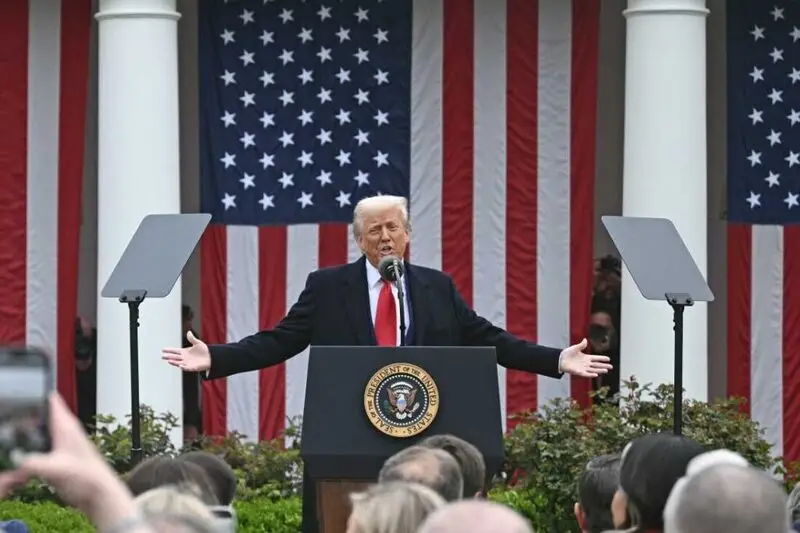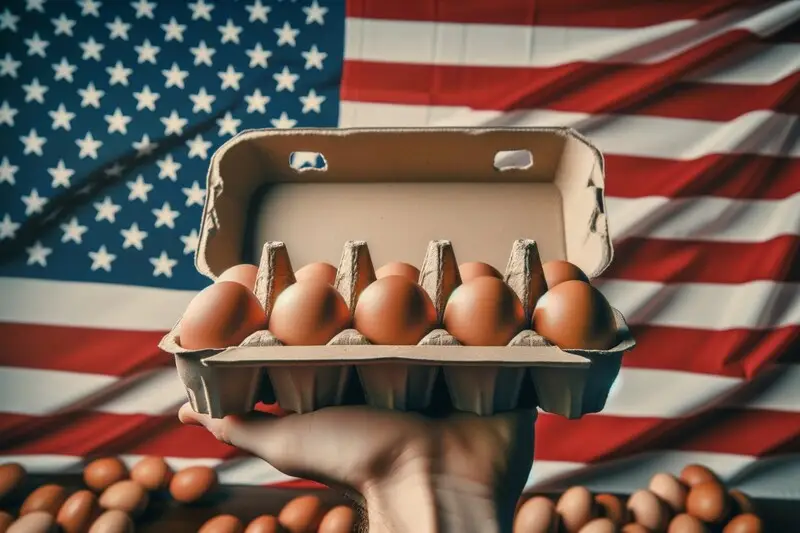Throughout the first five months of the year, the United States has struggled with increasing macroeconomic pressures and geopolitical tensions. The quest for new trade deals has sought to balance global trade, while tariff talks have dominated the year so far. Yet, the average citizen has benefitted over the last several months as US egg prices have fallen 61% since President Donald Trump took office.
The cost of the popular grocery in the country was a point of contention when President Trump first returned to the White House. Now, according to the US Department of Agriculture (USDA), the price of the eggs reached merely $2.52 per dozen, down from heights of $8 in March.
JUST IN: 🇺🇸 Price of eggs in the US has dropped 61% since President Trump took office. pic.twitter.com/4CCAjSWEy4
— Watcher.Guru (@WatcherGuru) June 2, 2025
Also Read: SpartanNash Reveals How They Keep Egg Prices Down
US President Trump Tackles Egg Prices as They Fall 61%
There is no shortage of major issues that the United States is set to be confronted with over the next several years. Amid a $36 trillion national debt, shockingly, the price of eggs was a topic that dominated conversations between everyday Americans. Indeed, it was such a talking point that the president of the country shared an article urging citizens to just stop talking about those prices.
Yet, he has seemed to have taken strides to bring the price down since he returned to the White House. Indeed, US egg prices have fallen 61% since President Donald Trump returned to office in late January. Although it seems trivial, the $6 price of the grocery was a real struggle for average citizens.

Also Read: US President Trump Urges Congress to Pass Stablecoin Legislation
In April, Clarity Capital reported that 30% of all Americans had stopped buying the staple food due to the costs rising so rapidly, Fox News reports. According to new data, lessening demand and falling bird flu cases have played a hand in the falling price of eggs in the country.
Additionally, the United States has seen an increase in imports. Specifically, Reuters reported that the country boosted imports from Turkey, Brazil, and South Korea to provide increased supply. The move was vital amid a concerning bird flu outbreak. The crisis saw 170 million chickens, turkeys, and other birds killed over the last three years.






